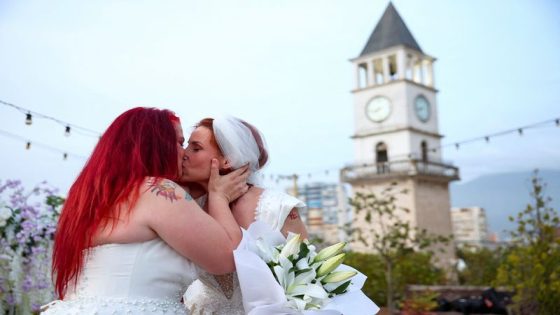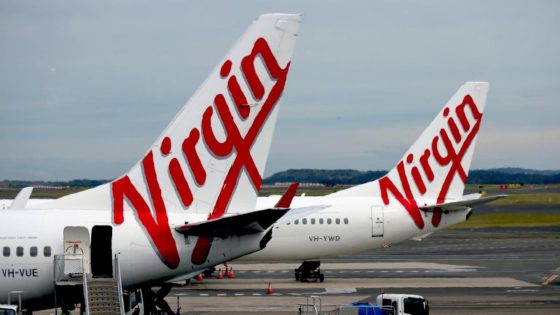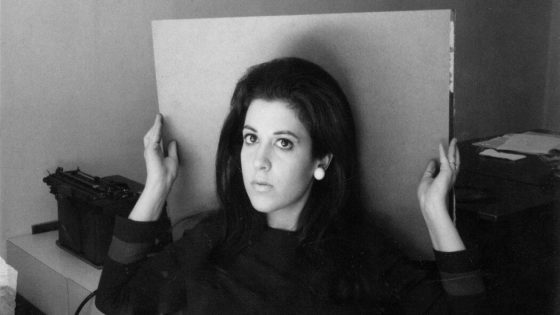TIRANA (Reuters) – On the roof of the mayor’s office in Albania’s capital Tirana, lesbians Alba Ahmetaj and Edlira Mara held an unofficial wedding ceremony on Sunday, a symbolic move they hope will promote LGBT+ rights in the conservative Balkan country.
Guests threw white petals as the couple, dressed in billowing white gowns, approached the altar that overlooked the historic city centre. When the ceremony finished, they kissed, and hugged their three-year-old twin daughters.
Same sex marriage is not allowed in Muslim-majority Albania, and their partnership will not be recognised by the state. But the couple, who were wed by two British pastors, wanted to send a message.
“Our society is very patriarchal and homophobic,” Ahmetaj said before the ceremony. “This is something that belongs to us, why should society meddle here?”
Three storeys below, police guarded the building entrance in case of protest. When the wedding was announced on social media a day earlier, the post was flooded with hate speech.
“Sick people,” said one. “You should burn in hell,” wrote another.
While most of Western Europe has made strides towards marriage equality, rights are restricted in much of central and eastern Europe.
Neighbouring Greece passed same sex marriage into law earlier this year, and Kosovo, which also has an ethnic Albanian majority, is considering recognising same-sex unions soon. But Muslim and Christian leaders hold strong influence in Albania and have opposed such a change.
According to an EU report last year, around 40% of the Albanian LGBT+ community reported incidents of discrimination. Only one-fifth of those were reported to police.
On February 10, Mara and Ahmetaj were having coffee with their daughters in a Tirana cafe when they both received messages on Facebook saying they would be shot by a sniper “in the middle of the forehead” if they went there again, Mara said.
“I was afraid to go through that road for days…the danger in my mind is still present.”
Still the women push for their rights.
They have gone to court to be recognised as joint parents of their daughters. If this fails, they plan to refer their case to the European Court of Human Rights in Strasbourg.
“We will not stop fighting,” Mara, the biological mother, said. “Our daughters deserve to have both of us in official documents.”
Sunday’s ceremony took place at dusk overlooking Tirana’s main square. A few dozen guests sipped wine and cheered their friends. Oblivious pedestrians enjoyed the warm evening below.
“To those who are against this marriage I am telling them that nothing will change, the earth is still spinning, Albania will continue to be poor and polluted,” said Xheni Karaj, an LGBT+ activist whose partner caught the wedding bouquet.
(Reporting by Fatos Bytyci; Editing by Edward McAllister and Peter Graff)
Source Agencies




